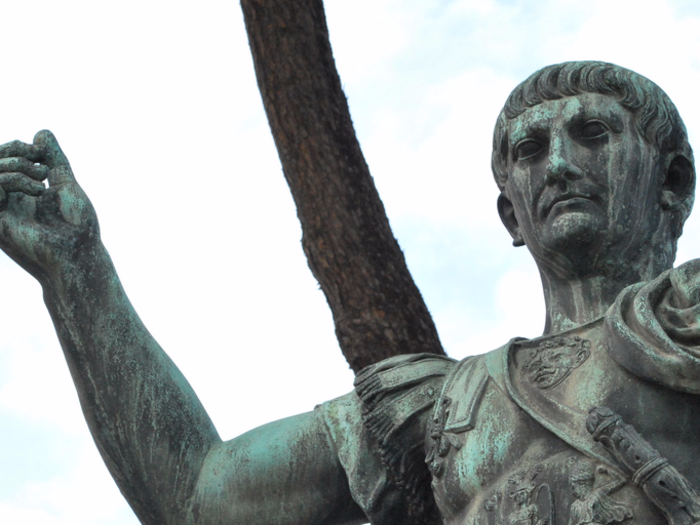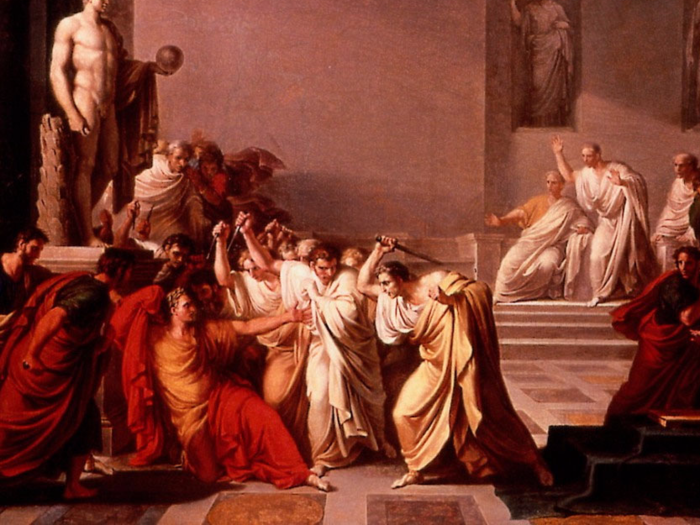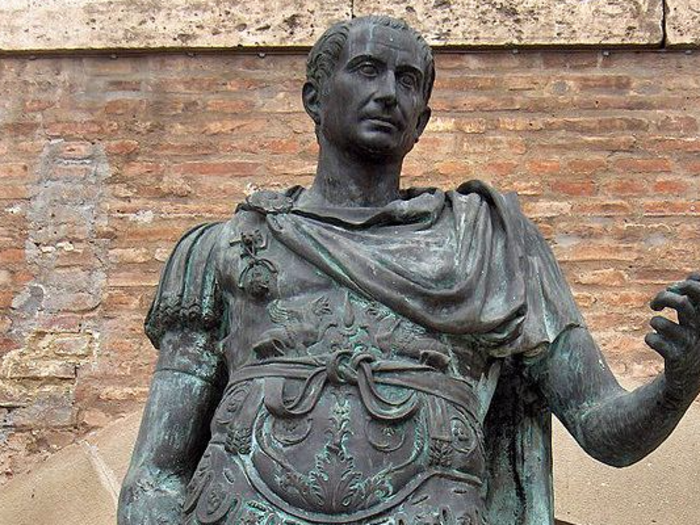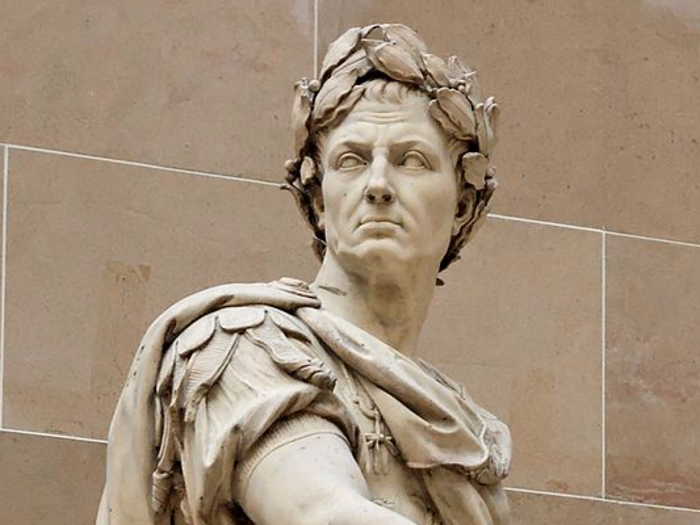7 unforgettable leadership lessons from the ancient Roman conqueror Julius Caesar
1. Presentation matters

2. Take risks

In ancient Rome, crossing the Rubicon River with an army was kind of a big deal. It was tantamount to a declaration of war and could be punishable by death.
When Caesar crossed the Rubicon with his legion, he put everything on the line. In "The Life of the Deified Julius," Suetonius writes that Caesar quoted an Athenian playwright as he crossed the river, declaring "the die is cast."
He risked it all and it paid off (in the short-term, at least).
3. There's nothing wrong with starting small

Oftentimes, you've got to start out as a large fish in a small pond in order to succeed as a leader.
Caesar understood this. He managed to climb back into a position of power, even after losing his inheritance in a coup as a young man.
According to the ancient Plutarch's "Parallel Lives," the general also made a rather curious remark while passing through a small village in the Alps: "I assure you I had rather be the first man here than the second man in Rome."
4. Nothing is set in stone

As a general, Caesar new that circumstances could change in an instant. According to Bill Yonne's "Julius Caesar: Lessons in Leadership from the Great Conqueror," Caesar once wrote that "in war, events of importance are the result of trivial causes."
Resting on your laurels is never a good idea — because things can always take a turn for the worst.
5. Never kid yourself

Even if you're a successful leader, you never want to get to the point where you start to buy your own nonsense.
In his chronicle of the Gallic Wars, Caesar concludes that: "in most cases men willingly believe what they wish" when describing a tactical mistake on the part of his Gallic enemies.
The best leaders behave rationally and don't allow their feelings or preconceived notions to dominate their decision-making. Gut calls and instincts are important too, but the best leaders utilize both — not one or the other.
6. Don't get comfortable

No matter how good things look, the best leaders never fail to anticipate the worst outcomes.
In his "Commentaries on the Gallic Wars," Caesar writes: "The immortal gods are wont to allow those persons whom they wish to punish for their guilt sometimes a greater prosperity and longer impunity, in order that they may suffer the more severely from a reverse of circumstances."
Basically, if you're on a winning streak, watch out. Caesar would have done well to actually follow this advice himself. Instead, he allowed a conspiracy to boil under him once he became dictator, resulting in his famous assassination.
7. Never sell yourself short

In order to lead, you need confidence in your own abilities. This is something that Caesar never seemed to lack.
This is illustrated by one notable incident in the ancient Roman's life (involving pirates, of all things). In his account of Caesar's life, Plutarch writes that, as a young man, Julius Caesar was abducted by the pirates that swarmed the Mediterranean Sea.
Livius.org provides a translation of what happened next: "First, when the pirates demanded a ransom of twenty talents, Caesar burst out laughing. They did not know, he said, who it was that they had captured, and he volunteered to pay fifty."
Caesar went on to promise the pirates that he'd personally kill them once he was free. After he was ransomed, he raised a fleet, hunted them down, and did just that.
Popular Right Now
Popular Keywords
Advertisement